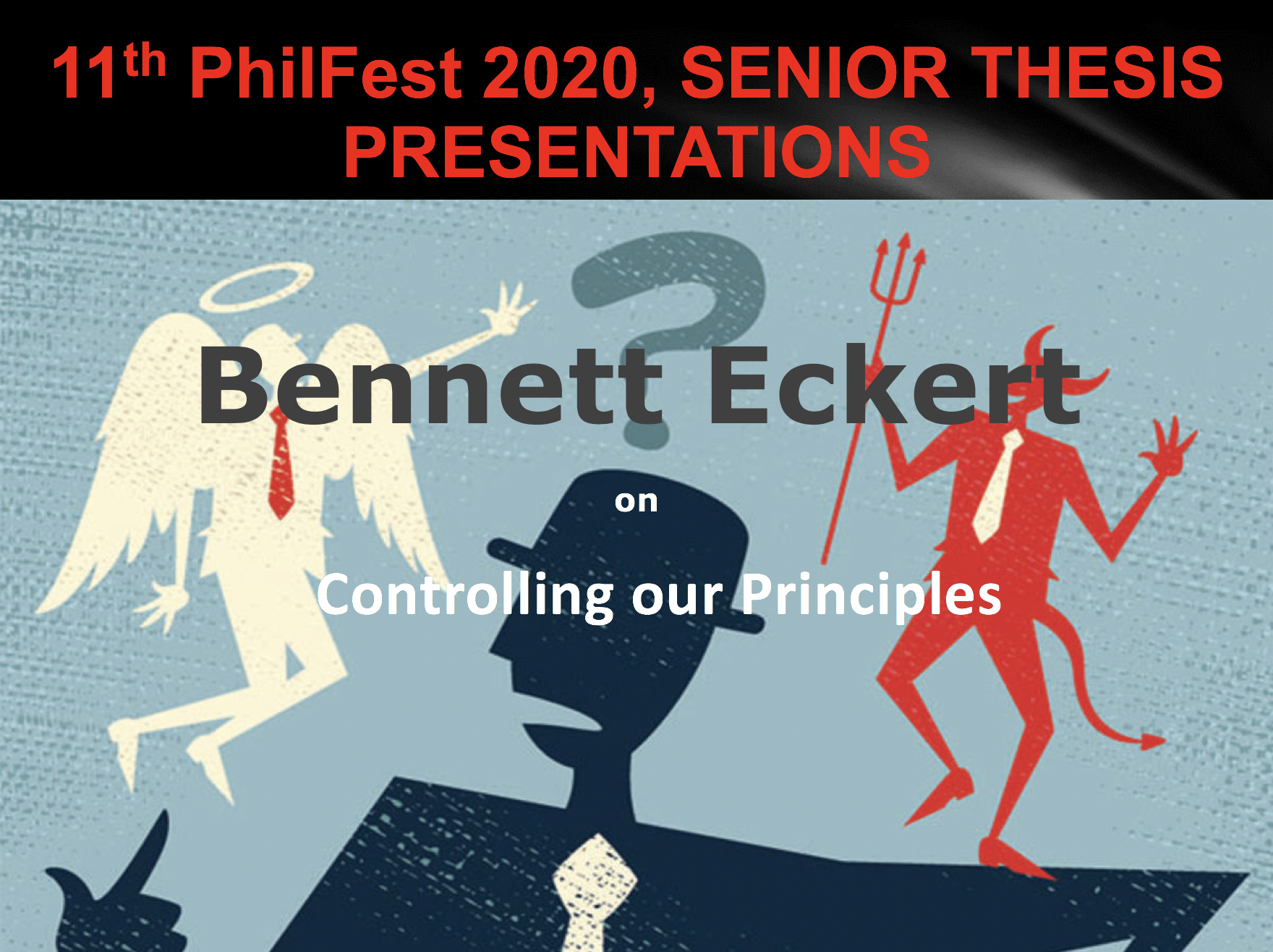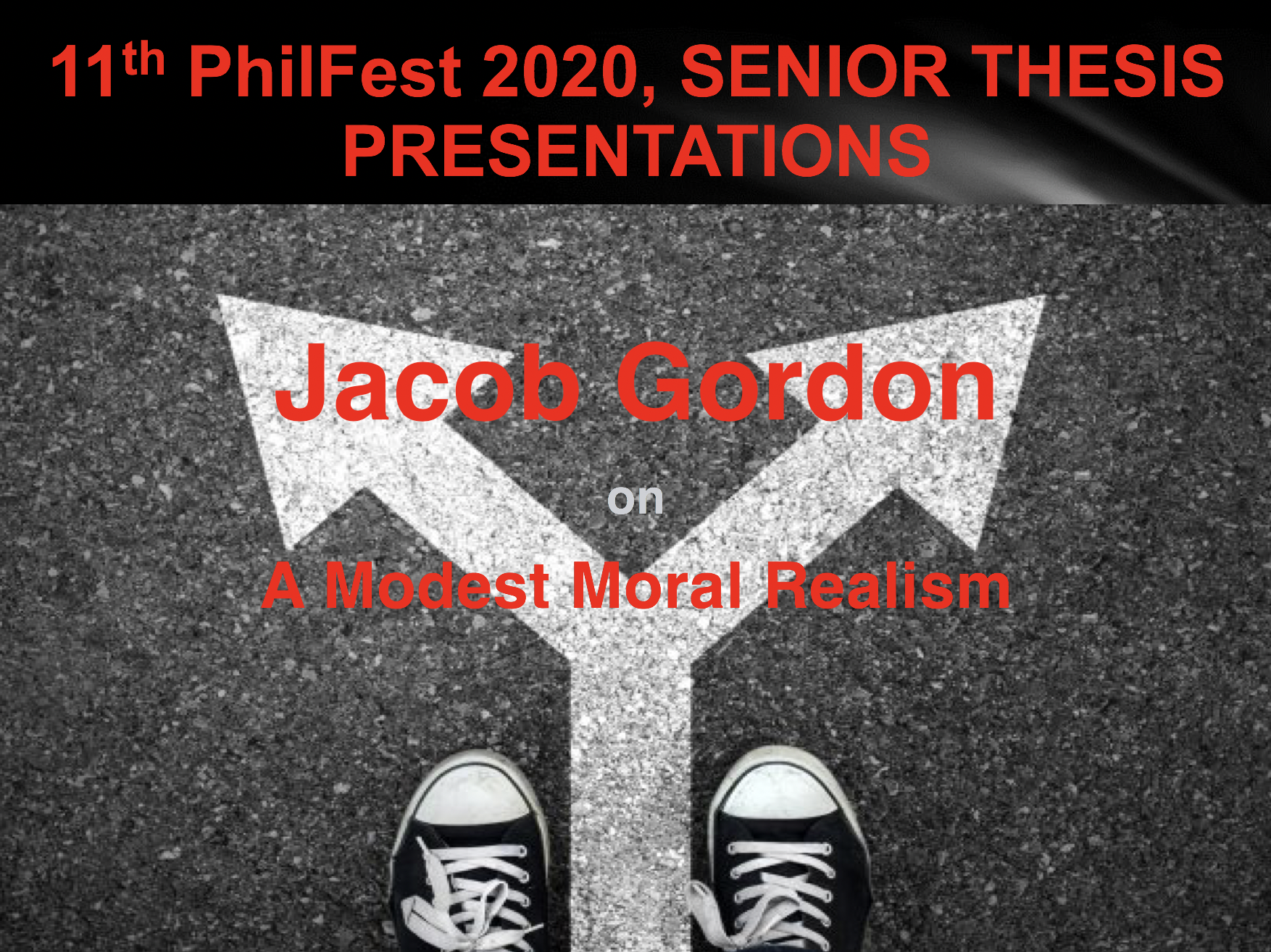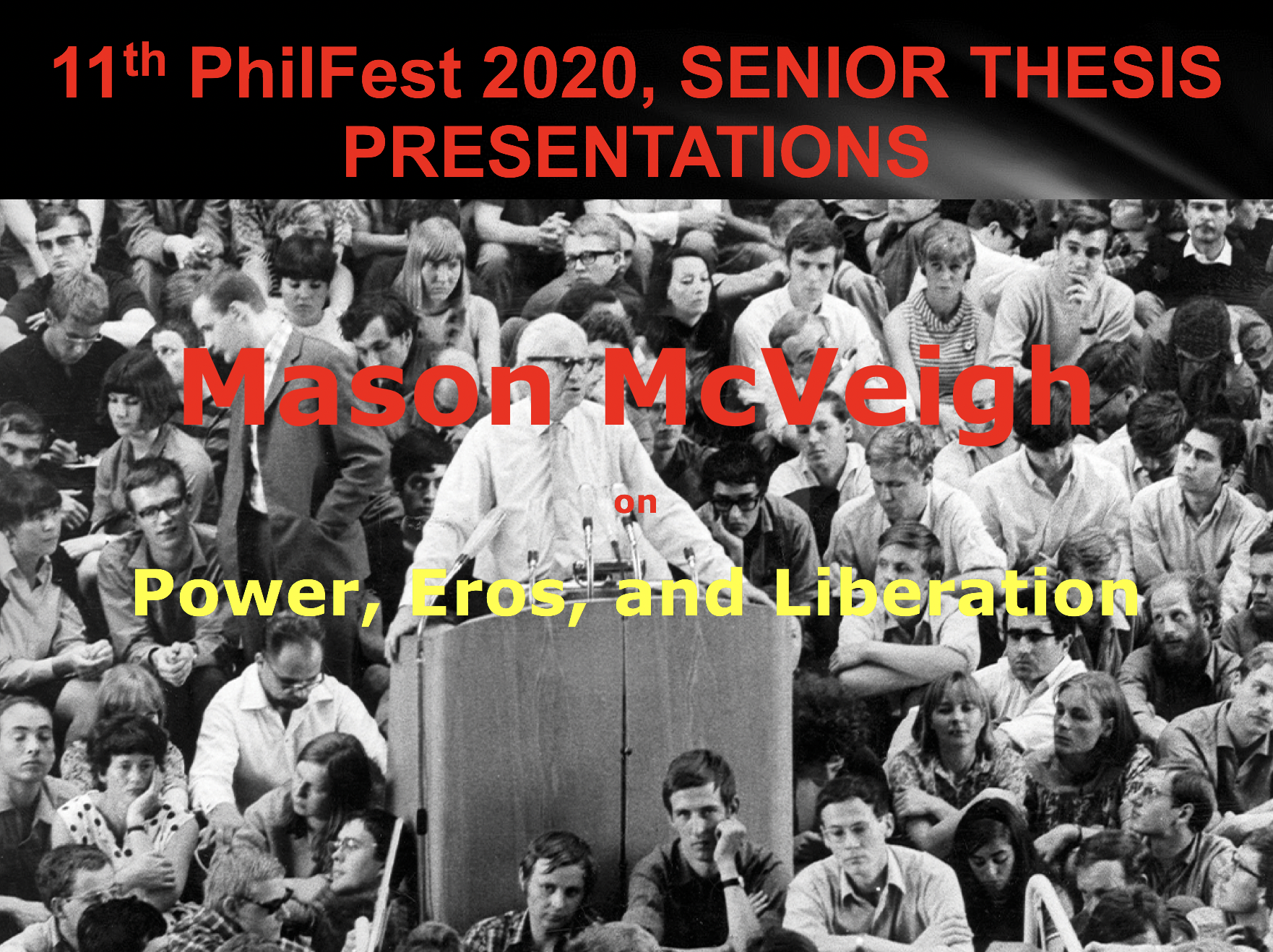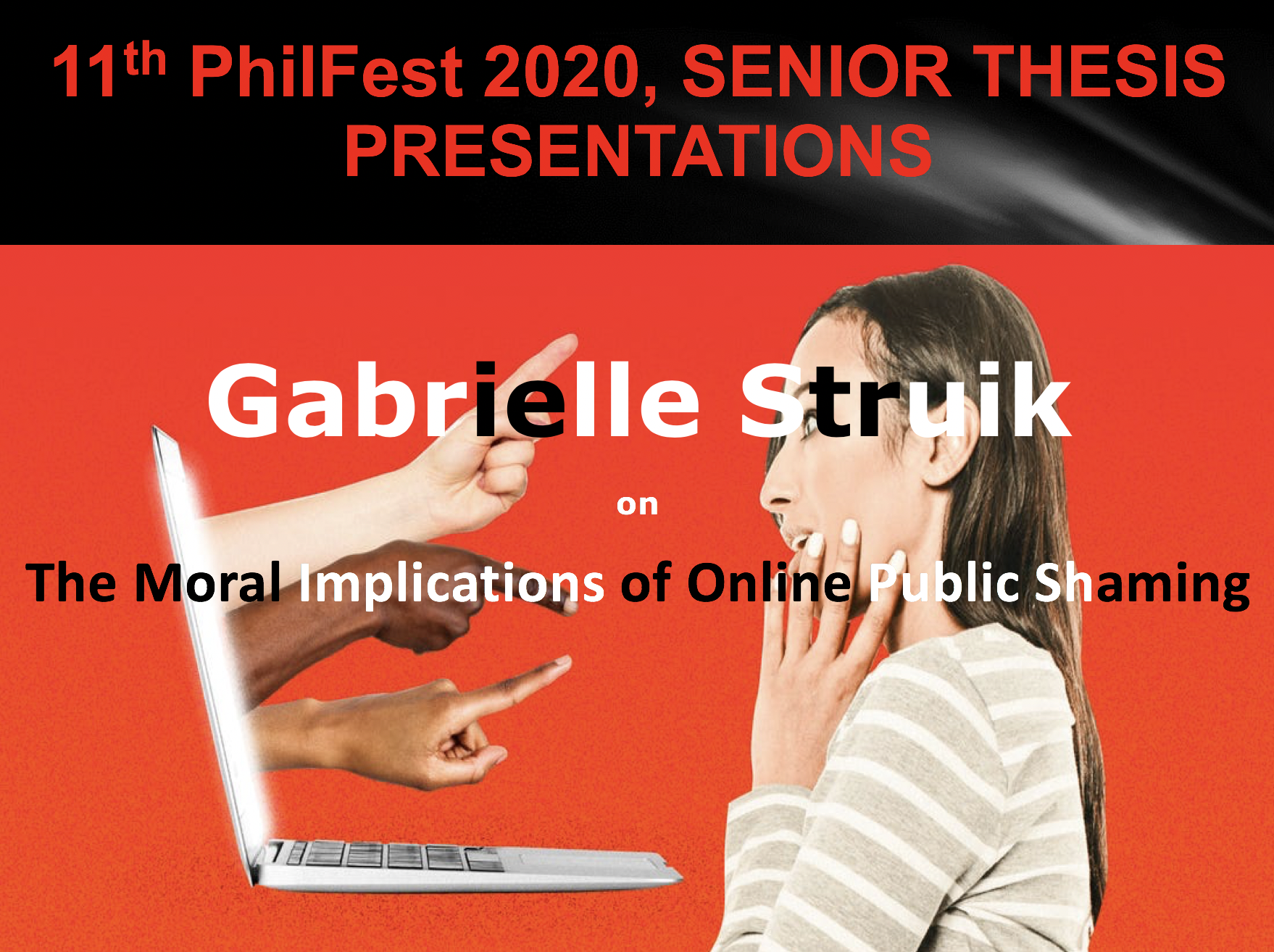11th Annual PhilFEST
Under normal circumstances, PhilFEST is the highlight of our undergraduate community’s life in which honors students present their research in 15-minute presentations followed by a public Q&A I front of a live audience from across the university and including, where possible, families and friends. It then is a family-fest among our undergraduate community with food, drink, visitors, and high-octane philosophy. This year, under the conditions of Covid-19 restrictions, everything was going to be different, and doubts whether a successful celebration of our honors students’ accomplishments would be possible at all were more than justified when the pandemic response began and our campus emptied and everyone fell into social isolation. We nonetheless decided to construct a Zoom version of the event on 05-27-2020, with many details and rehearsals, which turned out to be a huge success attended by almost 50 persons from everywhere, thus allowing all of us to share at least in the event one by one on screen a fantastic series of presentations and a shared memory of accomplishment. This year’s research projects in the students’ words:
Bennett Eckert, Controlling our Principles (supervisor: Prof. Kyla Ebels-Duggan):
 Our practical principles—such as ‘I will treat my friend’s need as a reason to help her’—determine which considerations we treat as reasons for action. These principles are ‘up to us:’ we must determine our practical principles for ourselves. My thesis addresses the question: in what sense are our practical principles up to us? It might seem that our principles are up to us in the same way that our bodily actions are up to us: we adopt them voluntarily. This appears to be Christine Korsgaard’s view. However, I argue that we do not, and indeed cannot, adopt or hold our practical principles voluntarily. That is, one cannot adopt a principle ‘at will,’ for any reason that one takes to count sufficiently in favor of holding it. Our practical principles embody our answers to normative questions regarding which considerations are reasons for action, and we cannot settle these questions ‘at will.’
Our practical principles—such as ‘I will treat my friend’s need as a reason to help her’—determine which considerations we treat as reasons for action. These principles are ‘up to us:’ we must determine our practical principles for ourselves. My thesis addresses the question: in what sense are our practical principles up to us? It might seem that our principles are up to us in the same way that our bodily actions are up to us: we adopt them voluntarily. This appears to be Christine Korsgaard’s view. However, I argue that we do not, and indeed cannot, adopt or hold our practical principles voluntarily. That is, one cannot adopt a principle ‘at will,’ for any reason that one takes to count sufficiently in favor of holding it. Our practical principles embody our answers to normative questions regarding which considerations are reasons for action, and we cannot settle these questions ‘at will.’
Jake Gordon, A Modest Moral Realism (Supervisor: Prof. Mark Alznauer):
 In this presentation, I will defend moral facts relative to those of science. I will begin by arguing that science deserves to be humbled. After stripping science of its undeserved ontology, I will show that moral facts can achieve a similar level of objectivity and significance to scientific ones. This discussion will apply a strong empiricism to fundamental questions regarding the nature of scientific and moral thought. By taking science and morality from the clouds and placing them in the world, I intend to critique the moral skepticism made popular by an unduly bold scientific realism, and to support moral philosophy’s place in contemporary thought.
In this presentation, I will defend moral facts relative to those of science. I will begin by arguing that science deserves to be humbled. After stripping science of its undeserved ontology, I will show that moral facts can achieve a similar level of objectivity and significance to scientific ones. This discussion will apply a strong empiricism to fundamental questions regarding the nature of scientific and moral thought. By taking science and morality from the clouds and placing them in the world, I intend to critique the moral skepticism made popular by an unduly bold scientific realism, and to support moral philosophy’s place in contemporary thought.
Mason McVeigh: Power, Eros, and Liberation (Supervisor: Prof. Mark Alznauer):
 Herbert Marcuse (1898-1979) produced a wealth of writings on aesthetic theory and the role of art in politics. Several of his works, such as The Aesthetic Dimension (1978) and his short essay “The Affirmative Character of Culture,” (1932) express Marcuse’s pointed reflections on art and politics. However, Marcuse’s writings on other topics also offer valuable information about his broader aesthetic theory. In the following paper, I systematically piece together Marcuse’s understanding of different types of political art, substantiate these types with examples that Marcuse used, and explore how Marcuse may have approached determining the quality and function of a specific artwork within the context of the society in which it was created. Considering the influential theorist’s works as a whole, including fragments and unpublished essays, yield a nuanced understanding of his opinions about art and politics.
Herbert Marcuse (1898-1979) produced a wealth of writings on aesthetic theory and the role of art in politics. Several of his works, such as The Aesthetic Dimension (1978) and his short essay “The Affirmative Character of Culture,” (1932) express Marcuse’s pointed reflections on art and politics. However, Marcuse’s writings on other topics also offer valuable information about his broader aesthetic theory. In the following paper, I systematically piece together Marcuse’s understanding of different types of political art, substantiate these types with examples that Marcuse used, and explore how Marcuse may have approached determining the quality and function of a specific artwork within the context of the society in which it was created. Considering the influential theorist’s works as a whole, including fragments and unpublished essays, yield a nuanced understanding of his opinions about art and politics.
Gabby Struik: The Moral Implications of Online Shaming (Supervisor: Prof. Mark Alznauer):
 This presentation will explore the history of public shaming and how our shaming behavior has evolved with the introduction of technology into society. We will examine recent cases of online shaming and how shaming behavior can easily become harmful instead of beneficial. We will also explore possible hypotheses as to why humans shame so aggressively by utilizing Nietzsche and Freud as guides and discussing possible solutions to this current phenomenon.
This presentation will explore the history of public shaming and how our shaming behavior has evolved with the introduction of technology into society. We will examine recent cases of online shaming and how shaming behavior can easily become harmful instead of beneficial. We will also explore possible hypotheses as to why humans shame so aggressively by utilizing Nietzsche and Freud as guides and discussing possible solutions to this current phenomenon.
A video recording of NU's 11th Annual PhilFest is available to view online. A Zoom account is required to view the recording.
